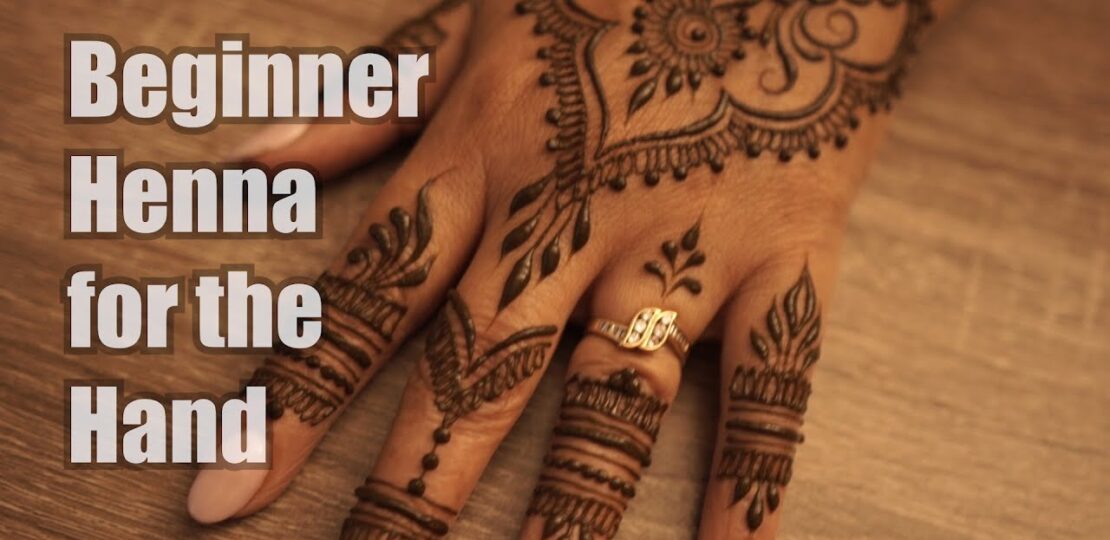Mastering the Art of Mehndi: Your Ultimate Guide to Henna Classes in Dubai
October 28, 2025 | by IoT Development Company

Dubai, a city where rich heritage meets modern ambition, is the perfect backdrop for learning the ancient art of henna, or mehndi. More than just a temporary tattoo, henna is a profound cultural symbol of celebration, beauty, and good fortune, deeply embedded in Emirati, Indian, and wider Middle Eastern traditions.
For tourists seeking an authentic cultural experience or aspiring artists looking to master a beautiful craft, enrolling in Henna Classes in Dubai offers a rewarding pathway. These courses provide the structured knowledge, hands-on practice, and cultural context necessary to transform raw talent into professional skill. From understanding the chemistry of the natural paste to executing intricate bridal designs, Dubai’s specialized academies are hubs for mehndi mastery.
The Cultural and Professional Value of Henna Classes in Dubai
Dubai’s status as a global crossroad means its henna art is a vibrant fusion of regional styles. Learning here not only grounds you in tradition but also exposes you to contemporary trends, providing both cultural enrichment and career opportunities.
Understanding the Art’s Heritage and Significance
A quality henna course begins not with a cone, but with the history and cultural importance of the practice.
Henna in Emirati and South Asian Traditions
Dubai’s heritage heavily influences the art taught in its academies. Students learn about:
- The Henna Night (Laylat Al Henna): The pre-wedding ceremony where elaborate designs bless the bride, a major cultural event in the UAE.
- Symbolism: Understanding the meaning behind popular motifs, such as flowers for joy, vines for long life, and paisleys for fertility.
- Natural Ingredients: The critical importance of using 100% organic, natural henna derived from the Lawsonia inermis plant, avoiding harmful ‘black henna’ alternatives.
Developing Professional and Business Skills
For many, learning henna is a viable path to starting a profitable side business or a full-time career, especially with the year-round demand for bridal and event henna in Dubai.
Certified Training and Market Readiness
Many reputable henna classes in Dubai offer KHDA-attested certificates (Knowledge and Human Development Authority), which is essential for formal business licensing in the UAE. These courses often include modules on:
- Pricing and Packages: Setting rates for party, bridal, and corporate event services.
- Client Consultation: Discussing design preferences, managing expectations, and conducting patch tests.
- Portfolio Building: Creating a professional portfolio that showcases a range of styles necessary to attract high-paying clients.
Mastering the Craft: What You Learn in Henna Classes in Dubai
A comprehensive henna course provides a structured curriculum that covers all technical and artistic aspects, moving from the fundamentals of the medium to complex design execution.
The Foundation: Henna Mixology and Cone Control
The quality of the stain and the ease of application depend entirely on the henna paste itself. Mastering its creation is the first, most crucial step.
Perfecting the Paste Recipe
Students learn the chemistry of making the perfect, silky-smooth paste, which involves:
- Sourcing: Identifying high-quality henna powder and essential oils (like tea tree or lavender) necessary for dye release and a rich, dark stain.
- Mixing Ratios: Achieving the correct consistency—neither too runny (which bleeds) nor too thick (which clogs the cone).
- Storage and Aftercare: Learning how to properly store fresh paste and how to provide clients with crucial aftercare instructions (using lemon/sugar sealant) to maximize stain longevity.
Cone Handling and Line Work
The henna cone is the artist’s pen. Proper handling dictates the clarity and precision of the final design. Hands-on practice focuses on:
- Grip and Pressure: Maintaining steady, even pressure to produce lines of consistent thickness.
- Basic Motifs: Executing foundational elements like perfect dots, swirls, vines, curves, and shading techniques.
Advanced Design Styles and Techniques
Dubai’s courses are celebrated for their focus on diverse regional styles, allowing artists to cater to a broad clientele.
Arabic and Gulf Designs
- Characteristics: Known for their bold, flowing lines, less dense coverage, and large, elegant floral or vine patterns. They often focus on the palms, wrist, and feet, leaving ample negative space.
- Skills Taught: Creating sharp borders, using bold negative space, and mastering free-flowing khaliji (Gulf) motifs.
Indian (Traditional Mehndi) and Pakistani Designs
- Characteristics: Highly dense, intricate patterns that cover the hands and feet fully, often incorporating figures, netting (jaal), and complex traditional filler work.
- Skills Taught: Executing symmetrical designs, mastering fine line work, and developing the patience required for high-detail bridal mehndi.
Modern and Fusion Techniques
Contemporary henna classes in Dubai also train students in popular modern adaptations:
- White Henna and Jagua: Using temporary body paints (not natural henna) that offer white or black stains, often requested for Westernized weddings or party wear.
- Glitter and Embellishments: Applying cosmetic glitter and small rhinestones to dried henna designs for added glamour.
Choosing the Right Henna Classes in Dubai: Your Checklist
To ensure a valuable learning experience, you must look beyond basic advertisements and focus on the credentials and curriculum of the academy.
Prioritizing Certification and Tutor Expertise
- Accreditation: Look for schools that are approved by Dubai’s educational authorities (KHDA) or internationally certified henna organizations. This validates the quality of the training.
- Tutor Experience: The best instruction comes from professional artists with years of practical, paid experience, especially in bridal work, which is the industry standard for high-level skill.
Practical and Logistical Considerations
- Class Structure: Decide between intensive workshops (a few days) and longer, comprehensive courses (several weeks). Longer courses allow for better skill retention and practice.
- In-Person vs. Online: While online courses offer flexibility, in-person henna classes in Dubai provide crucial, real-time feedback on cone control and pressure—skills that are difficult to master remotely.
- Materials: Ensure the course fee includes high-quality, organic practice materials, including fresh henna paste and cones.
Conclusion
Learning henna in Dubai is an opportunity to connect with a powerful, living tradition while acquiring a valuable artistic skill. Henna classes in Dubai provide the ideal environment for beginners to find their footing and for experienced artists to refine their techniques and expand their professional offerings. By mastering paste mixology, foundational designs, and the intricate styles of the region, you gain a creative passport, ready to adorn hands with beauty, symbolism, and a true masterpiece of temporary art.
RELATED POSTS
View all



